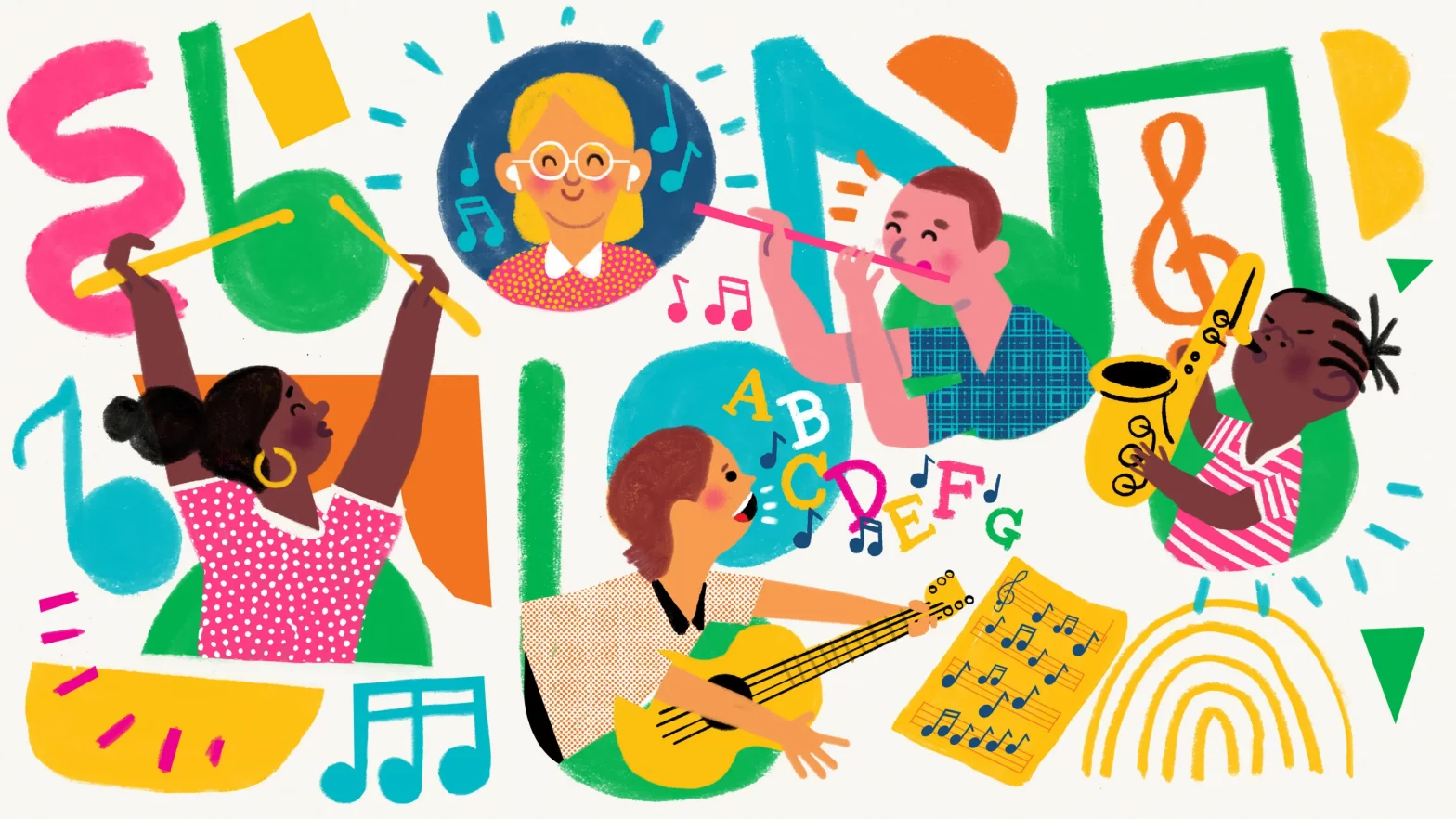According to Stephen Moss at The Guardian, “Learning to read and play music gives you access to a new language, other worlds.” In fact, many Indian schools including the Narayana Group of Schools, in West Bengal prioritizes music education. The causal relationship between music and academic achievement should come as no surprise given that music theory is closely related to mathematics.
Modern education takes a holistic approach that extends beyond traditional topics such as math, science, and language. It recognizes the importance of developing a child’s creativity and emotional intelligence, and art and music education is one of the primary means of doing this. Music education benefits include cognitive ability, creativity, critical thinking, and emotional well-being. MMS Nipani in Karnataka and many other educational institutions worldwide, acknowledge the importance of art and music in a well-rounded education.
The Many Wonders of Music
Art and music education have been related to increased cognitive abilities. The process of creating visual art or music engages the brain in novel ways, encouraging the development of a variety of cognitive functions. For example, studies have found that learning to play a musical instrument can increase memory, attention, and problem-solving abilities. Similarly, visual art activities promote critical thinking, pattern detection, and spatial reasoning.
These cognitive talents are transferable to academic courses, allowing pupils to flourish in math, science, and language.
Music Drives Critical Thinking
Art and music education can help students develop critical thinking skills, which are essential for academic achievement. When students participate in artistic and musical activities, they learn how to analyze, interpret, and evaluate their own and other people’s work. They also learn to find connections between seemingly unconnected notions and ideas. These critical thinking abilities are useful not only in the arts but also in academic topics that require analysis and interpretation.
Music Inspires Creativity
Art and music education are connected with promoting creativity. They provide pupils a forum to express themselves and think outside the box. When kids are encouraged to pursue their artistic and musical interests, they become more creative and receptive to new ideas, resulting in school performance improvement. This inventiveness goes beyond the art studio or music room and can improve academic performance. Creative thinking allows students to approach academic obstacles from new angles and develop creative solutions to challenging problems.
Music Improves Discipline
The primary benefit of studying any instrument is increased discipline and resolve. Whether students study music as a pleasure or as a potential future career, learning an instrument takes a significant amount of time. Years of practice lead to the development of persons who are very self-disciplined and motivated.
By studying both academics and music, the amount of time they spend studying increases significantly, which helps to develop endurance. It goes to reason that people who practice self-discipline will be able to deal with challenging situations more effectively.
Music: Your Child’s Psychological Aid
A cheerful attitude not only improves learning ability, but can also favourably influence relationships, engagement, and, as a result, accomplishment.
Music has been shown in studies to improve both psychological and physiological well-being. Music students and musicians profit from mastering a musical composition or playing in a musical ensemble. In this regard, music is a fantastic confidence booster. Enjoying the audience’s reaction and appreciation is a type of enrichment. Belief in oneself and personal respect are critical for academic achievement.
A Final Note
Plato said that music provided “wings to the mind”. Numerous studies have shown that music can help mould the mind and improve brain function. Scientists have already observed that children enhance their memory, attentiveness, and communication skills. Music’s cognitive benefits, which the Greek philosopher first recognised at least 2300 years ago, are still being confirmed by research.
